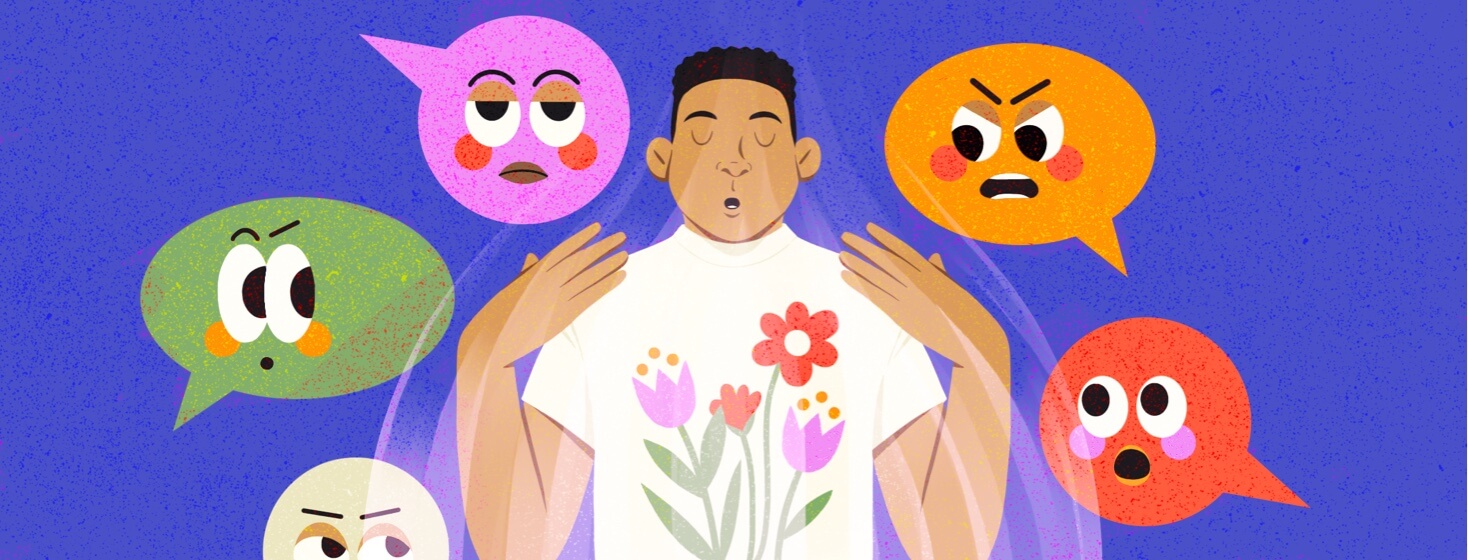Hearing "You Don’t Look Sick" When Living With Epilepsy
It goes like this when you live with an illness like epilepsy: you will deal with, and you spend too much time trying to teach individuals who don't understand your illness. You will have to explain it to people constantly and clearly. This will be extremely exhausting and upsetting – and sometimes even feel like you're being judged.
Constantly having to explain my epilepsy
As someone who has been living with epilepsy for the last 28 years, I can't tell you the constant explanation I've had to give individuals, whether it's educators, family, peers, employers, or, well... anyone. Why are you taking meds? Why do you have anxiety? It gets annoying. Anxiety, trauma, and anger linger as I have to continually explain myself.
Many will say, "But you don't have to tell everyone." You're right. But, for me, it's called safety. I need to be honest with those around me – in case I get sick, or in case I have a seizure. I don't want anyone to be shocked or surprised.
Growing up with epilepsy was hard
For me, epilepsy can feel like the Discovery Channel. I constantly must learn more about my condition. And then I have to share it and I have to correct misinformation and stereotypes. Mainly, what people see in movies, shows, and social media. It's a constant conversation.
Growing up, I didn't say much. Unfortunately, while my teachers were aware I had epilepsy, they didn't know how to teach me or help me. School became miserable. I felt left out from the rest of the kids and totally misunderstood by my teachers. It got the point of me being bullied not just by students, but also their parents – who feared inviting me to birthday parties or playing with their children due to my illness.
Explaining seizures
I didn't start to speak up until I was in the fifth grade. I would have to explain to my classmates and even friends: "If I push you, it doesn't mean I'm angry or mean. It means I'm going to have a seizure." Those things would occur when I was younger, but as time progressed, my signs of having a seizure changed. And it became terrifying. And harder to explain.
Thank God, though, I now have people who listen and understand. I've been able to openly share my scars with them. And even though my medical care has become a second part-time job, I'm grateful for treatment and tools like medical alert bracelets. It helps.
Mixed responses when you talk about your epilepsy
When sharing about epilepsy, many will look at us as if we have a giant question mark on our forehead. They don't get it. And constantly have to share and clarify takes a toll on one's mental health. Yes, that would be me – especially dealing with depression and anxiety. But also just our general comfort and ability to just "be."
In truth, though, when telling your survival story, you'll also get empathy. It comes with relief. But it can also come with being babied or smothered. A whole other side of the coin.
"You don't look sick."
Unfortunately, you will also hear this mind-blowing phrase: "You don't look sick." It depends on who you meet and talk to, but it will happen.
Imagine how that sounds. It's never a compliment. Even if what they mean is, "You don't look sick, you look good." Realistically speaking, it's beyond brain-crawling for me. It feels like you're being questioned or doubted. Like you aren't telling the truth. Whether it comes from family or friends or anyone in our lives.
So I explain the exact type of illness I have: a neurological disorder that can cause seizures at any time. Epilepsy is real. Seizures are real.
This means I have to be careful about things – things that could cause trigger a seizure. Like flashing lights, a particular food that I can't eat (like chocolate and carbohydrates), or even not having enough sleep and being stressed.
Feeling judged for my epilepsy
Now that I'm older, it feels even more hurtful when it comes to the endless judgmental questions from family. Even labels and false accusations. I deal with labels like "the freak." I have the space to educate others when feasible. But as soon as individuals are disrespectful, crude, or discriminative, this is when my already-introverted self will disappear.
Here's another comment that I will get: "You're so astute." What? That has zero to do with living with a neurological disorder?
But not everyone is like this. Of course, I have beloved family members and friends who warm my heart.
Memory loss, relationships, and being true to myself
Many will immediately know the gift of terrible memory loss due to living with epilepsy. I can't tell you the frustrating daily adventure of not remembering where things are. It's an everyday battle down. Losing my glasses is the worst. This is another thing some people just can't understand.
Living with such epilepsy is an adjustment. When those in your life dismiss your illness, it can be distressing. For me, making connections and keeping them has been a rollercoaster. And constantly explaining what I'm going through has casued me to distance myself from people I consider family – especially when the rudeness and lack of understanding creep in.
Sometimes, pieces of me are ashamed and still embarrassed about speaking about my epilepsy symptoms. And it can be crushing to feel this uncomfortable about something I have no control over. But by ignoring someone's suffering, it only hurts more.
Luckily, I have some great support – family and friends who care about me and try to understand what I'm going through. So it's all about spreading awareness. One adventure and experience at a time.

Join the conversation